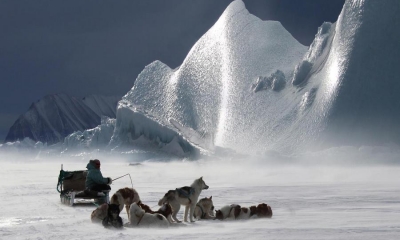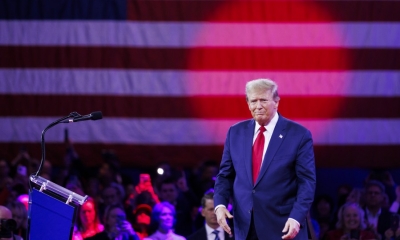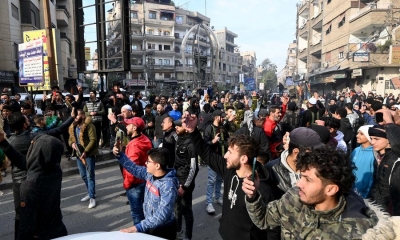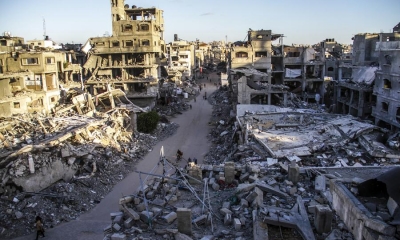China-Russia Collaboration in a Changing World
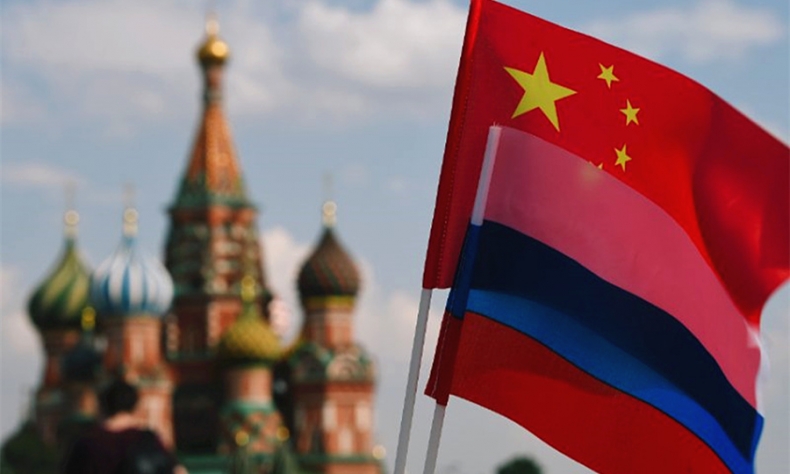
The international community must focus on peace and development and cooperate with Russia and China to bring about this better world.
Russian cooperation with China in a changing world contributes to international development and plays a role in stabilizing the international situation. Despite the negative disruptive actions of Washington and NATO, Moscow and Beijing seek a just and fair international system.
China hosted the Third Belt and Road Forum for International Cooperation (BRF) in Beijing on October 17-18. The first such forum took place in Beijing in 2017 and the second took place in 2019.
More than 150 countries and over 30 international organizations have joined the BRI. The world’s population represented is some 5.1 billion of the world’s 8 billion which amounts to about 62 percent. The combined BRICS GDP measured in purchasing power parity (PPP) is about 32 percent of the world total, while the Group of Seven (G7) countries represent about 30 percent so BRICS has surpassed the G7 by this measurement. However, BRICS membership is expanding so that this difference will be more pronounced in the coming years.
The Belt and Road Forum event marked the 10th anniversary of the launch of the BRI in 2013. At that time, Chinese President Xi Jinping offered a “new type of major power relations” and participation in BRI to U.S. President Barack Obama who rejected both.
The Trump administration also rejected both and launched economic warfare against China in the form of trade and technology sanctions. The Biden administration not only continued the Obama and Trump policies but sharpened and broadened the economic war.
Against this background, the 2023 BRF saw the participation of 23 heads of state or government. Putin’s presence was notable. President Xi has met more than twice as many times with President Putin as with any other world leaders.
Over 150 countries sent representatives to the Forum and several dozen international organizations were represented.
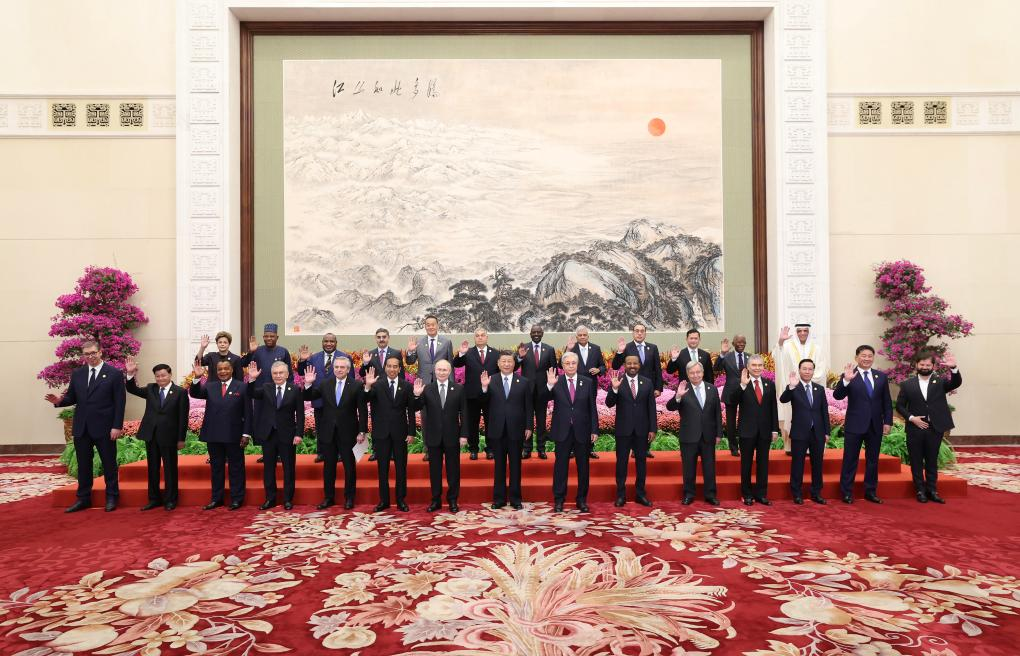
China-Russia collaboration
China-Russia relations have become stronger through the collaboration of Presidents Putin and Xi. They have met some 42 times in both one-on-one and virtual formats, according to the Chinese Foreign Ministry. This contrasts with 17 meetings reported with Presidents Obama, Trump, and Biden.
Stronger relations are marked by strengthening economic ties. In September 2023, monthly trade between Russia and China reached a record high of $21.2 billion which is up almost 60 percent from the same period in 2021.
President Xi said that “developing the China-Russia strategic partnership of coordination with ever-lasting good neighborliness and mutually beneficial cooperation is not an expediency, but a long-term commitment.”
The “long-term commitment” emphasized by Xi underscores a comment that he made to Putin on his visit to Moscow. “The world is undergoing changes unseen in a century,” he said. Putin agreed with the realistic assessment.
President Putin emphasized Russian support to the One China Principle and that Taiwan is part of China. His support for China’s sovereignty and territorial integrity was acknowledged by Xi. “China supports the people of Russia following their path to national rejuvenation and in safeguarding sovereignty, security and development interests of the country,” he said.
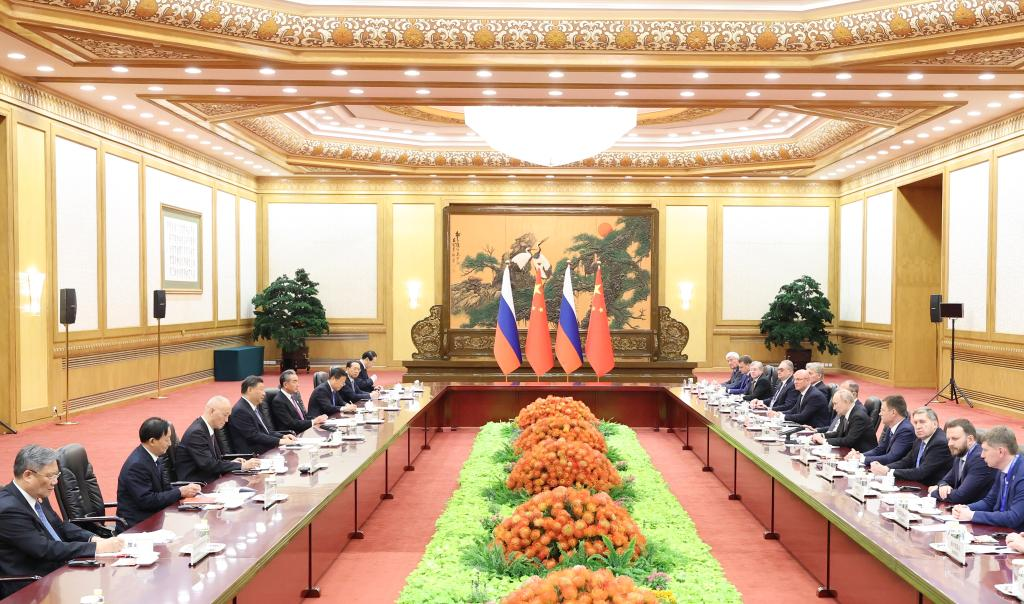
The changing international situation
The changes in the international system are indeed profound. The world is inexorably moving toward multipolarity. The Russian side describes the situation as a transition from Western “colonialism”. The Chinese side describes the situation as a transition from Western “hegemony”.
Both Moscow and Beijing stress that there are now new centers of development emerging. The Global South is rising in relative terms. Asia, the Middle East, Africa, and Latin America are increasingly factors impacting the general direction of global development.
Thus, both countries recognize what can be called a period of global transition. This period may extend over a decade or two. The challenge is to maintain global economic development and at the same time attempt to bring stability to an inevitably more turbulent world.
It is recognized by Moscow and Beijing that increasing turbulence during the transition era is caused by the United States and West who are attempting to maintain their hegemonic position in the international system.
The international community, however, realistically sees the changing situation and desires to be on the right side of the transition.
President Xi underscored China’s commitment to work with Russia within the United Nations as well as within the Shanghai Cooperation Organization (SCO) and Group of 20 (G20). Cooperation in the areas of food, energy, and supply chain security were highlighted.
For his part, President Putin emphasized continuing cooperation with China in the BRICS as well as in other multilateral mechanisms and platforms.
It was noted that the two leaders had an “in-depth exchange of views on the Palestinian-Israeli situation.” Given that the current Middle East crisis could expand into a regional war or worse, the cooperation of Russia and China to stabilize the situation is urgent.
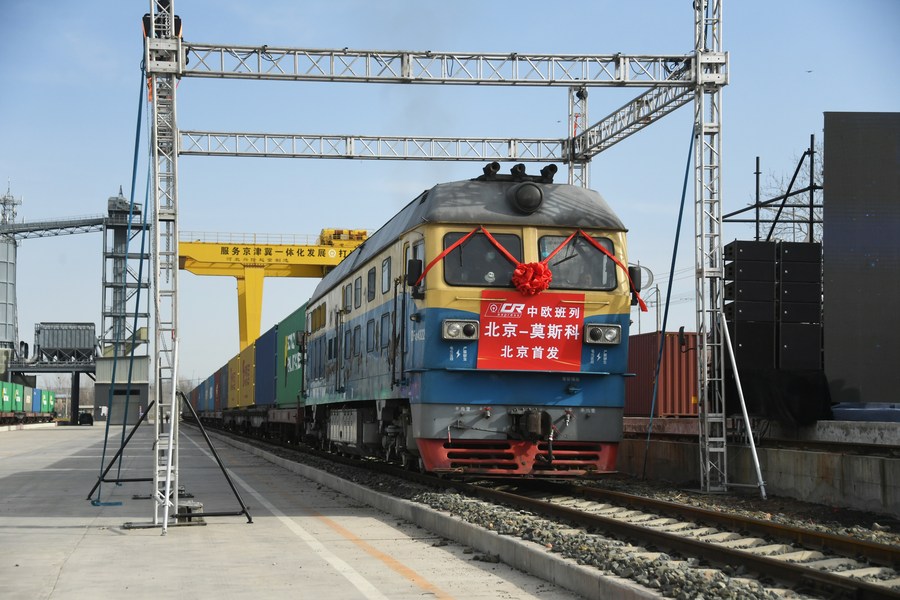
Putin and Russia look East
President Putin has emphasized the desire to expand economic cooperation between Russia and China as well as with Asia overall. This means creating a denser pattern of infrastructure. Increasing infrastructure and connectivity is central to the BRI.
Thus, at the BRF, President Xi said China would continue developing the China-Europe Railway Express and also cooperate in the trans-Caspian international transportation corridor.
In his address at the 2023 Far Eastern Economic Forum held earlier in Vladivostok, President Putin emphasized a look east policy focus. Integrating the Russian Far East into the wider Asia-Pacific region is a core strategy.
“Essentially, we are witnessing a new emerging model of relationships and integration – and not by Western patterns, for the elite, for the chosen ‘golden billion’ but for the entire humanity and the entire existing and developing multipolar world,” Putin said.
Putin continued, “This model offers creative energy, openness and focus on specific outcome as a powerful competitive advantage of the Asia-Pacific region, a key factor that determines and I am sure will determine for a long time its global leadership in economic growth.”
As to the Russian Far East, he emphasized that “the role of the Far East for our country and for its future, for Russia’s position in the multipolar world is immense.”
Putin put forward his look east vision in 2013, the same year China put forward the BRI vision. He recalled this at the Forum and said, “the advanced development of the Far East is our absolute priority for all of the 21st century, our shared responsibility and work of the Government, the regions and major Russian corporations both state-owned and private.”
The long-term visions of Presidents Putin and Xi are complementary and point to a fair and better world. The international community must focus on peace and development and cooperate with Russia and China to bring about this better world.
The article reflects the author’s opinions, and not necessarily the views of China Focus.
 Facebook
Facebook
 Twitter
Twitter
 Linkedin
Linkedin
 Google +
Google +




